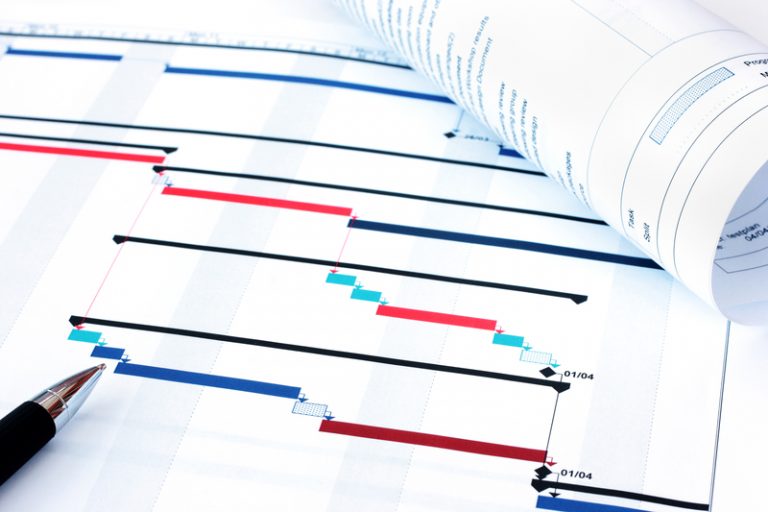Gantt Chart: Charting a Path to Success

Understanding the value of Lean Six Sigma tools is crucial to a practitioner. With a busy practice, keeping up with and accurately tracking the exact location and status of projects is crucial. The Gantt Chart is traditionally display as a bar chart. It shows the tasks of a project, when each must take place and how long each will take. The project progress is presented by bars, which are shaded to show which tasks have been completed. This can be a valuable tool to a Lean Six Sigma practitioner.
The Value of a Gantt Chart
A Lean Six Sigma practitioner needs to understand the considerations and factors involved in constructing and maintaining a Gantt chart. There are considerations to understand when to use the chart and the timing involved. The Gantt chart should be used when scheduling and monitoring tasks within a project, or when communicating plans or status of a project. Other factors to consider when using a Gantt chart are understanding when the steps of the project or process are complete. Also, to understand their sequence and duration are known. If these factors are applicable, a Gantt chart should be constructed and deployed.
Once you have a clear understanding of the contents of the chart and assembled it, you should clearly understand how the use will create value. When using the Gantt chart, you should fill in the diamonds and bars to show completion, as the tasks progress on a timeline. This will also allow you to estimate how far along you are on the individual task and the group plan. By placing a vertical marker to show where you are on the timeline, an accurate representation of task progress can be reported, in relationship to the established timeline.
Other Considerations
The value of the Gantt chart not only exists with the progress relationship to the timeline, but it allows the flexibility to report other factors that have specific impact. The chart can be drawn with additional columns showing other crucial details, such as the amount of time the task is expected to take, resources or skill level needed or person responsible. The proper use of the Gantt chart forces group members to think clearly about what must be done to accomplish their goal. Keeping the Gantt chart current as the project progresses helps manage the project and prevents scheduling problems.
Contact us at 6Sigma.us and find out how we can positively help you plan and change the culture and operations of your organization. We offer Green Belt and Black Belt training programs, as well as a Master Black Belt program.


